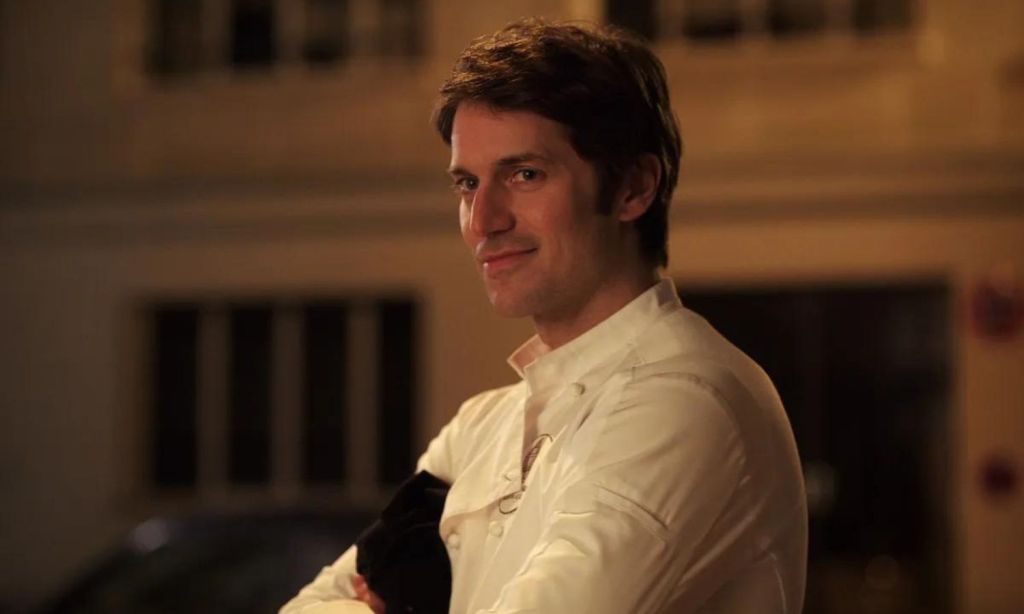This year, a certain type of TV love interest has been taking up space and getting the girl, and respectfully, could he please step aside and make way for the adults in the room?
I’m talking of a string of male leads in 2024’s Netflix darlings, of which notable examples include Dexter in One Day, Colin of Bridgerton, and most recently, Gabriel of Emily in Paris, all of whom would rather die than articulate a feeling, let alone commit to a relationship.
Take Gabriel (Lucas Bravo), Emily’s backburner love interest throughout four seasons of Emily in Paris; a man who flits from woman to woman with such European nonchalance that you hardly notice it’s happening.
While the charming French chef is on one level every straight girl’s fantasy, it doesn’t take long for the cracks to show: he flirts with Emily, never reveals he has a girlfriend, and cheats on said girlfriend, before getting back with her. He then goes on to register some jealousy when Emily starts dating Alfie (Lucien Laviscount), but in any case goes on to (almost) marry Camille.

Then there’s Dexter (Leo Woodhall) from One Day, who in Emma’s words likes to keep her “warm” for that elusive moment that he’s ready for a relationship. When Emma (Ambika Mod) concedes that she used to have feelings for him, he looks to get a kick out her vulnerability.
And when he admits having reciprocal feelings, he undercuts what could’ve been a moment of emotional maturity by declaring he “fancies everyone” (before going on to propose casual sex.) It’s not until more than a decade after they met, when Dexter has a divorce behind him, and Emma is dating some hot French dude (called Jean Pierre, which is a bit on the nose?) that he’s suddenly horny for commitment.
This may be a key characteristic of the TV’s erratic love interest — they only realise their feelings once they see our leading lady with someone else, which… grow up?
Colin feigned disinterest in Penelope until the night that Lord Debling was slated to propose; and in Gabriel’s case, he literally finds himself at the altar with Camille at which point she calls the whole thing off. And by the time Dexter and Emma get together, as viewers still recovering from the series’ heartbreaking finale will know, it’s too late.
There’s something to be said of Debling, Alfie, and at times even Ian, here: the men in the wings were straightforward about their feelings and managed to commit from the off. Debling, as many viewers said at the time, was arguably perfect for Penelope: not only did he show obvious interest in her from the beginning, and in a particularly hot move, bought her a plant.
And while Emily In Paris’ Alfie may be brusque, unlike Gabriel he was single when he and Emily met and didn’t, as far as we know, cheat on her. Ian was probably more of a question mark, raising some serious red flags, born for example when he breached Emma’s privacy by invading her home. Nevertheless, he still committed to Emma from the off, in a way that Dexter and Colin could never quite manage.
I know what you’re thinking: slow-burn love stories make for more satisfying love stories and better TV. The will-they-won’t-they TV trope is a trope for a reason, as it cultivates a verve and tension that audiences will keep watching as they want it resolved. But arguably this trend isn’t just a will-they-won’t-they situation: we’re seeing a specific trend of emotionally bereft men on TV who for some reason, still end up getting the girl.
It’s “just” TV, but the culture that we consume will always shape our feelings and how we move through the world. The risk is that their shiftiness and lack of emotional maturity are romanticised, rather than framed as the red flag that it really is. All I’m saying is that there’s a lot to be said for being emotional just once, I’d like to see a leading lady kick whoever has her on the back burner to the curb.
Related: Horror Doesn’t Need ‘Elevating’; Its Critics Do
Related: The ‘It Ends With Us’ Debate: Do Trigger Warnings Need a Spoiler Warning?
Read more stories from The Latch and subscribe to our email newsletter.

